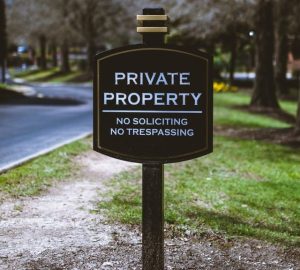 Recently in the news are stories about squatters taking over properties in New York. A recent blog post addressed the question of who is legally defined as a squatter, and how such a person could be evicted. The reason for this prior analysis is that, under then-current New York law, anyone occupying a property for at least thirty days was legally considered a “tenant” and had to be evicted through the Court system, most often in the local landlord-tenant Court.
Recently in the news are stories about squatters taking over properties in New York. A recent blog post addressed the question of who is legally defined as a squatter, and how such a person could be evicted. The reason for this prior analysis is that, under then-current New York law, anyone occupying a property for at least thirty days was legally considered a “tenant” and had to be evicted through the Court system, most often in the local landlord-tenant Court.
Allowing such persons the same protections under the law as actual tenants (generally meaning those who had a lease and were paying rent to the owner) caused property owners serious problems. Under the prior law, a person could enter the premises without the consent of the owner, remain there for at least thirty days, and be considered a tenant for the purposes of eviction law. The owner would then have to hire experienced counsel to first issue a termination notice to the “tenant” who entered the property without his consent. After the expiration of the termination notice, if the occupant failed to vacate, an action in landlord-tenant Court would have to be commenced. Such an action, under the law, requires approximately two weeks prior notice to the “tenant.” Once in Court, a tenant is allowed an adjournment to obtain counsel if requested. Further adjournments, depending on the Court’s caseload, would be likely. As a result, the “tenant,” who entered without the owner’s consent, and was not paying rent to the owner, could stay for quite some time before the Court finally allowed an eviction to occur. The expenses of such legal proceedings, as well as the actual eviction conducted by the Marshal, would have to be paid by the owner, with little chance of recovering such sums from the squatter.
In light of these unjust outcomes, New York has now passed a new law that excludes squatters from the protections of the landlord-tenant laws. The law now defines a squatter as someone staying at a property without permission from the owner or a representative for the owner. It states that a squatter is not to be considered a tenant, and is not entitled to the legal protections of a tenant. As a result, if someone is illegally occupying property, the owner can contact the police to remove the squatter, rather than having to evict him through the Court system.
As with any new law, Courts will have the final say in interpretation. Does this new law mean that a person occupying premises as a former owner after foreclosure is technically a squatter, and can be removed without legal proceedings? It is doubtful that this is what is intended, but our firm will continue to update the situation as the new law goes into effect and is applied to real-life situations.
 New York Real Estate Lawyers Blog
New York Real Estate Lawyers Blog

